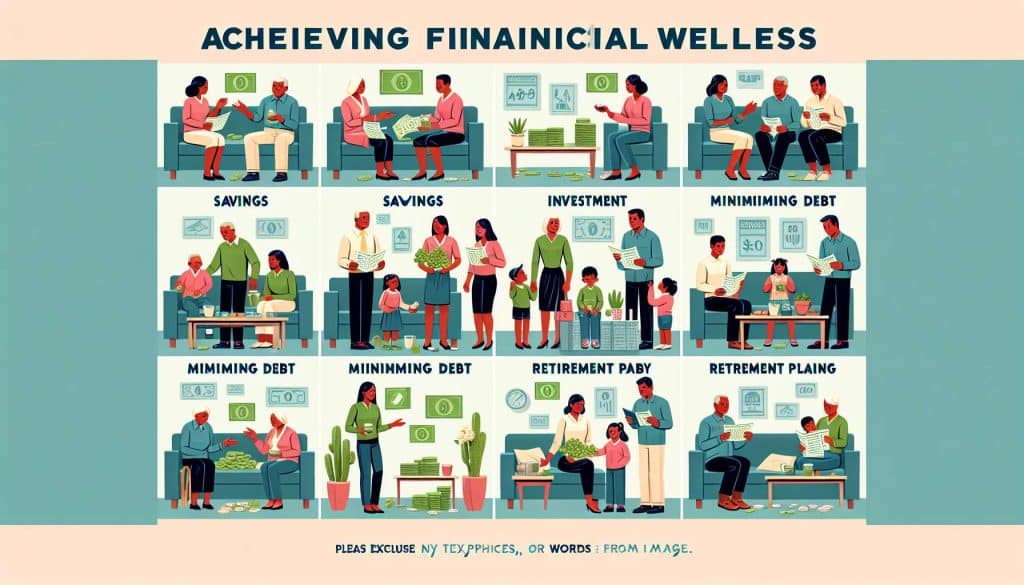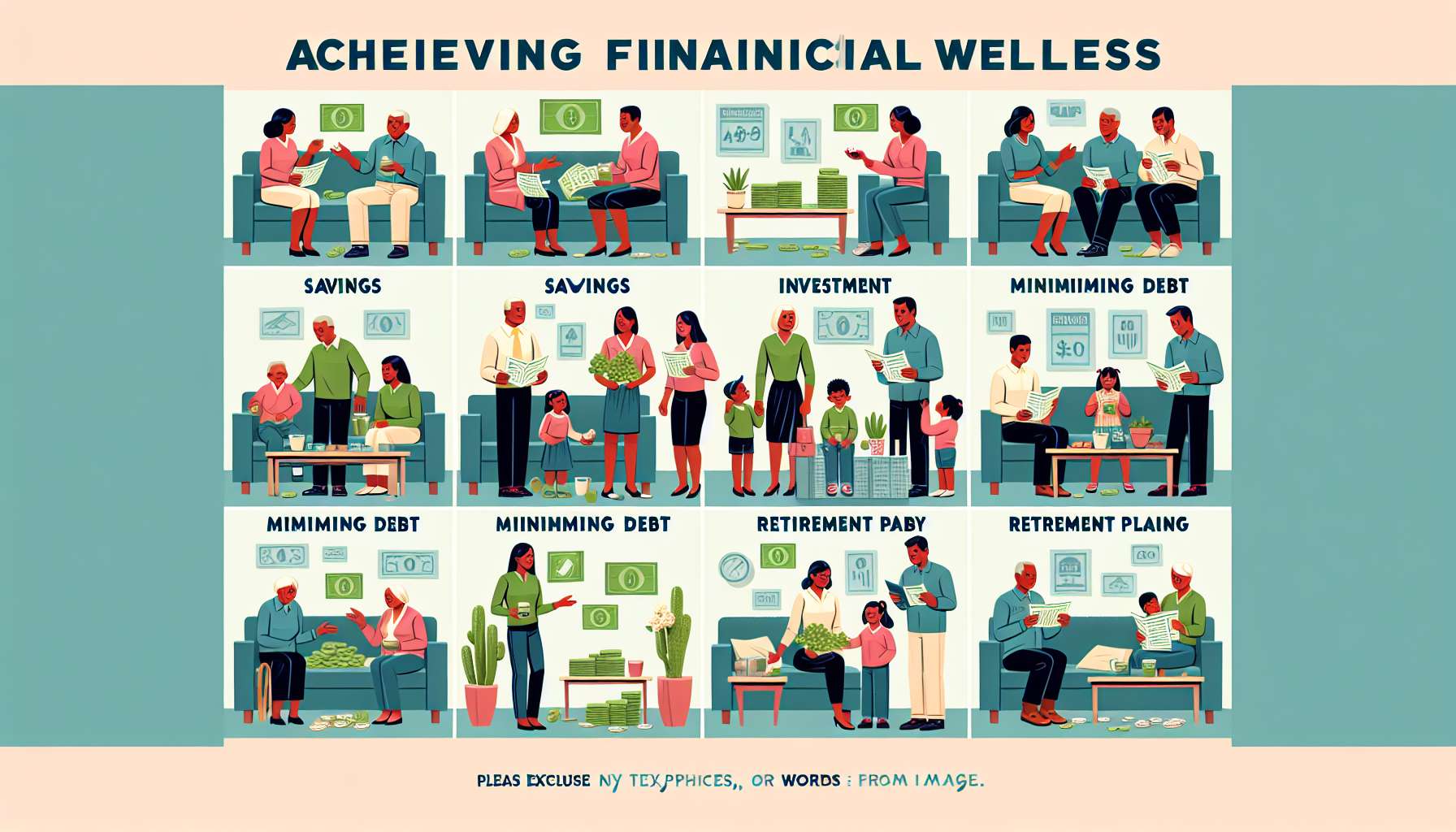10 Key Strategies for Financial Health in American Households


Anúncios
Introduction to Personal Finance Strategies
Life in the U.S. presents a myriad of financial opportunities and challenges. Navigating this terrain can often feel as intricate as solving a complex puzzle. Thankfully, with the right guidance, it’s possible to manage expenses, ramp up savings, and optimize your budget. This article is crafted to be your compass, guiding you through the often perplexing world of personal finance. By embracing these insightful tips, you’ll find yourself on the road to financial stability.
Understanding where you currently stand financially is paramount. Before implementing strategies, take time to evaluate your current financial picture. Map out your income streams, expenses, and debts to gain a comprehensive understanding. This clarity will empower you to tailor the suggestions in this guide to meet your personal needs. A clear assessment ensures you harness strategies that align with your situation.
Anúncios
Budgeting might not elicit excitement for many, but it’s undeniably crucial for sustained financial success. A well-structured budget acts as a blueprint, guiding where your money goes. Whether using traditional methods like spreadsheets or exploring apps designed for budgeting, clarity about your financial flow can significantly boost your savings. The ensuing sections delve deeper into crafting effective budgets and more.
Mastering the Art of Personal Finance
The digital age offers numerous tools to streamline budgeting processes. Apps like Mint and YNAB have revolutionized personal finance by providing intuitive platforms for tracking and analyzing expenses. By leveraging such technology, individuals can make informed decisions and nurture good financial practices. These platforms not only ease the budgeting task but also empower users with insightful suggestions on managing money effectively.
Building an emergency fund is a robust pillar of financial health. Emergencies are unpredictable, and having a cushion of three to six months’ worth of expenses can alleviate the stress associated with unforeseen events. Whether it’s a sudden job loss or a medical emergency, an emergency fund allows you to navigate these challenges without drastically impacting your daily finances.
Anúncios
Saving becomes simpler when it’s automated. By setting up automatic transfers from your paycheck to a savings account, you ensure consistent growth in your savings. Without the temptation to spend money that never reaches your checking account, you’re set for effortless saving. Over time, these automated contributions form a significant nest egg, enhancing financial security.
Spending strategies can play a pivotal role in financial management. The 50/30/20 rule, for instance, is a renowned method. By allocating 50% of income to essentials, 30% to desires, and 20% to savings or debt repayment, this method balances spending while ensuring priority is given to savings and responsibilities. This tactic ensures healthy financial discipline without entirely sacrificing enjoyment.
In today’s world, discerning between using cash and cards for payments is vital. While cards offer convenience, using cash for discretionary spending can significantly cut costs. The act of physically handing over cash serves as a tangible reminder of expenditure, often resulting in more mindful purchases. Consider setting aside a cash amount weekly for these types of expenses.
Characteristics of Effective Financial Management
- Creating a realistic budget.
- Leveraging apps for financial tracking.
- Maintaining an emergency fund.
- Automating savings for consistency.
- Prioritizing high-interest debt repayment.
Benefits of Embracing Personal Finance Strategies
Adopting solid financial strategies ushers in numerous benefits, contributing to overall life satisfaction. One prominent advantage is enhanced financial security. By maintaining an emergency fund and consistent budgeting, individuals can handle unexpected financial pressures with ease. This preparedness leads to reduced stress and a stronger sense of control over one’s financial landscape.
Another significant benefit is the empowerment that comes from informed choice-making. With a deeper understanding of personal finance, individuals make decisions rooted in knowledge rather than impulse. This informed approach fosters greater financial freedom as individuals are less likely to be shackled by debt or short-term financial crises.
Economic stability is often linked directly to mental well-being. When financial worries are minimized through effective strategies, individuals experience improved mental health. Knowing your finances are in check can substantially decrease anxiety and stress levels. There’s peace of mind that comes from knowing you’re prepared for future hurdles.
Additionally, financial literacy often translates to new opportunities. With a stable financial footing, you are more likely to invest in further education or explore new ventures. This opens doors to increased earnings, allowing for even greater savings or investments. Such explorations not only boost personal growth but also contribute to wider economic participation.
Finally, embracing these strategies allows for a more fulfilling life. When financial chaos is diminished, individuals can focus on what truly matters, fostering enriched relationships and experiences. It’s not merely about cutting costs but optimizing one’s financial path to live life to its fullest potential.
- Enhanced financial security and stability.
- Empowered decision-making abilities.
- Reduced stress and anxiety.
- Opportunities for further education or ventures.
- A more enriched and fulfilling life.





